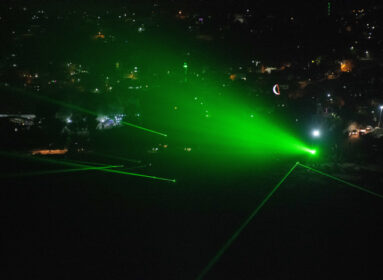
By Josefin Dolsten/(JTA) – When Israeli Prime Minister Benjamin Netanyahu walked back an agreement with the United Nations last week to resettle abroad at least half of the African migrants seeking asylum in his country, it did not play well with the majority of Israelis. But don’t assume that means the public wants the migrants to stay in Israel, pollsters warn. While most knocked Netanyahu for a lack of leadership, the Israeli public overwhelmingly rejects the idea of granting residency to all or most of the migrants.
“They are not ready to have 40,000 people being recognized,” said Tamar Hermann, the academic director of the Guttmann Center for Public Opinion and Policy Research at the Israel Democracy Institute, which has done surveys on the issue. Hermann was referring to the 40,000 or so Sudanese and Eritrean migrants who have made their way to Israel, often to South Tel Aviv. While nongovernmental organizations in Israel and Jewish and civil rights group abroad consider them refugees, opponents regard them as “infiltrators” who came to Israel for economic reasons, not fleeing persecution. Israelis also ask why it is their responsibility to solve problems originating in Africa, and question the economic and social impact of absorbing the non-Jewish migrants.
Over 70 percent of Jewish Israelis are against granting the migrants residency, Hermann estimated. However, in that group some support granting residency to those of the migrants who qualify for official refugee status – but under the assumption that the number of recognized refugees will be small, she said. Hermann said it is hard to estimate how many of the group would actually qualify as refugees.
Among those on the right of the migrant issue, meaning they do not want to the migrants to settle in Israel, Hermann said there are two groups that are the most vocal in their opposition to allowing the migrants to settle: residents of South Tel Aviv and religious Zionists. The South Tel Avivians say the migrants who have moved there have brought crime and significantly deteriorated conditions in the low-income neighborhood.
Those who are part of the religious Zionist camp oppose settling the migrants for ideological reasons. Ashkenazi chief rabbi of Israel, David Lau, distinguishes between refugees and economic migrants. “We have many people in the State of Israel who need to be cared for – citizens of the state,” he said. “I’m thinking of the disabled, whom we aren’t always able to support; the Holocaust survivors living amongst us – including some in disgraceful conditions. And I’m also talking about the residents of South Tel Aviv. … Aside from all that,” Lau said, “we have to distinguish between refugees and people looking for work.”
Hermann said that between a fifth and a quarter of Jewish Israelis are on the left on the issue, meaning they agree a solution must be worked out that will allow migrants to stay or that ensures their safety if they are sent elsewhere. But among progressives there is also a split, with some in support of allowing all the asylum seekers to stay in the country, regardless of whether they meet the international standards for refugee status, and others saying only those who can be classified as refugees should be allowed to stay.
CAP: African migrants protesting in Tel Aviv, June 10, 2017. (Tomer Neuberg/Flash90)








 Southern New England Jewish Ledger
Southern New England Jewish Ledger










